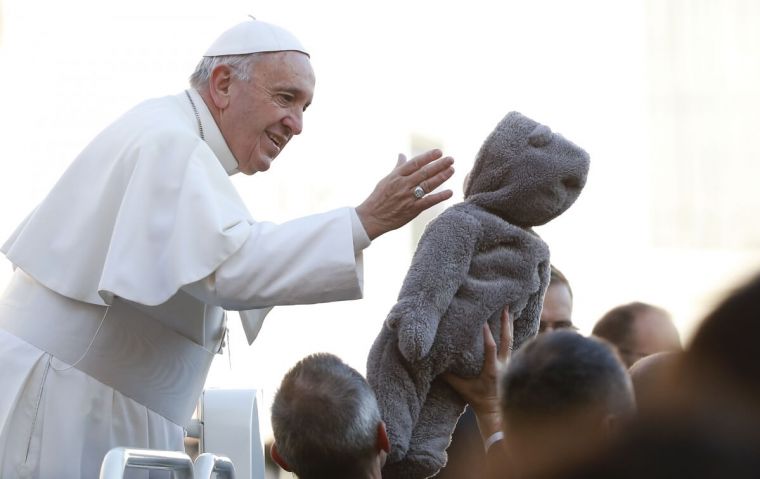Pope Francis: The world needs to discover the mercy of God

Pope Francis has used an interview with a Vatican publication to make a passionate appeal for the Roman Catholic Church to embrace the theme of mercy.
The interview with Credere was in advance of the start of the Jubilee Year of Mercy, which begins on December 8. The event will be marked by the ceremonial opening of the Holy Door in St Peter's Basilica, normally sealed with mortar, which Francis has said "will become a Door of Mercy through which anyone who enters will experience the love of God who consoles, pardons, and instils hope".
His announcement of the Jubilee was unexpected as these major events in the life of the Church are usually planned years in advance, and is of a piece with his determination to push the limits of his Papal authority in bringing his message to the Church and the world.
In his Credere interview Francis said his choice of mercy as the Jubilee year theme "wasn't a strategy; it came to me from within: the Holy Spirit wills something."
He continued: "It's obvious that today's world is in need of mercy, it is in need of compassion. We are used to bad news, to cruel news and to the greatest atrocities that offend the name and life of God. The world is in need of discovering that God is Father, that there is mercy, that cruelty isn't the way, that condemnation isn't the way."
In a warning to hard-liners in the Church heirarchy he said that: "because the Church herself sometimes follows a hard line, she falls...into the temptation of stressing only the moral rules", with the result that "many people are excluded".
The Church, he said, should be "a field hospital after a battle" where the wounded are "taken care of, helped and healed".
He said: "I felt that Jesus wishes to open the door of His heart, that the Father wishes to show his deepest mercy, and therefore sends us the Spirit: to move us and to deter us."
He had harsh words for arms manufacturers whose trade he described as a "sacrilege". "See, the Father says: 'Stop and come to me,'" he said.
Asked about his own experience of mercy, he said: "I am a sinner, I feel myself a sinner, I'm sure of being so. I am a sinner upon whom the Lord has looked with mercy." He said that he went to Confession "every 15 to 20 days".
He referred to a significant moment in his Christian life when on September 21, 1953, when he was on his way to a railway station and felt compelled to enter a church.
"I went in and I saw a priest coming down one side, whom I didn't know. I don't know what happened to me at that moment, but I realised my need to go to Confession, in the first Confessional on the left – many people went to pray there. And I don't know what happened, but I came out different, changed. I returned home with the certainty of having to consecrate myself to the Lord."
The priest there who mentored him, Fr Carlos Benito Duarte Ibarra, died the following year. "After the funeral I wept bitterly, I felt totally lost, as if the fear of God had abandoned me," the pope said.
He explained that the day he went into the church was connected to his episcopal motto, Miserando atque eligendo, a quotation from the Venerable Bede on the conversion of St Matthew, whose feast day it is. He translated it as "having mercy and choosing", "almost as craftwork": "I realised that the Lord had crafted me with His mercy," he said.
Francis called for a "revolution of tenderness" in society: "Each one of us must say: 'I am an unfortunate man, but God loves me thus, so I must also love others in the same way.'"











